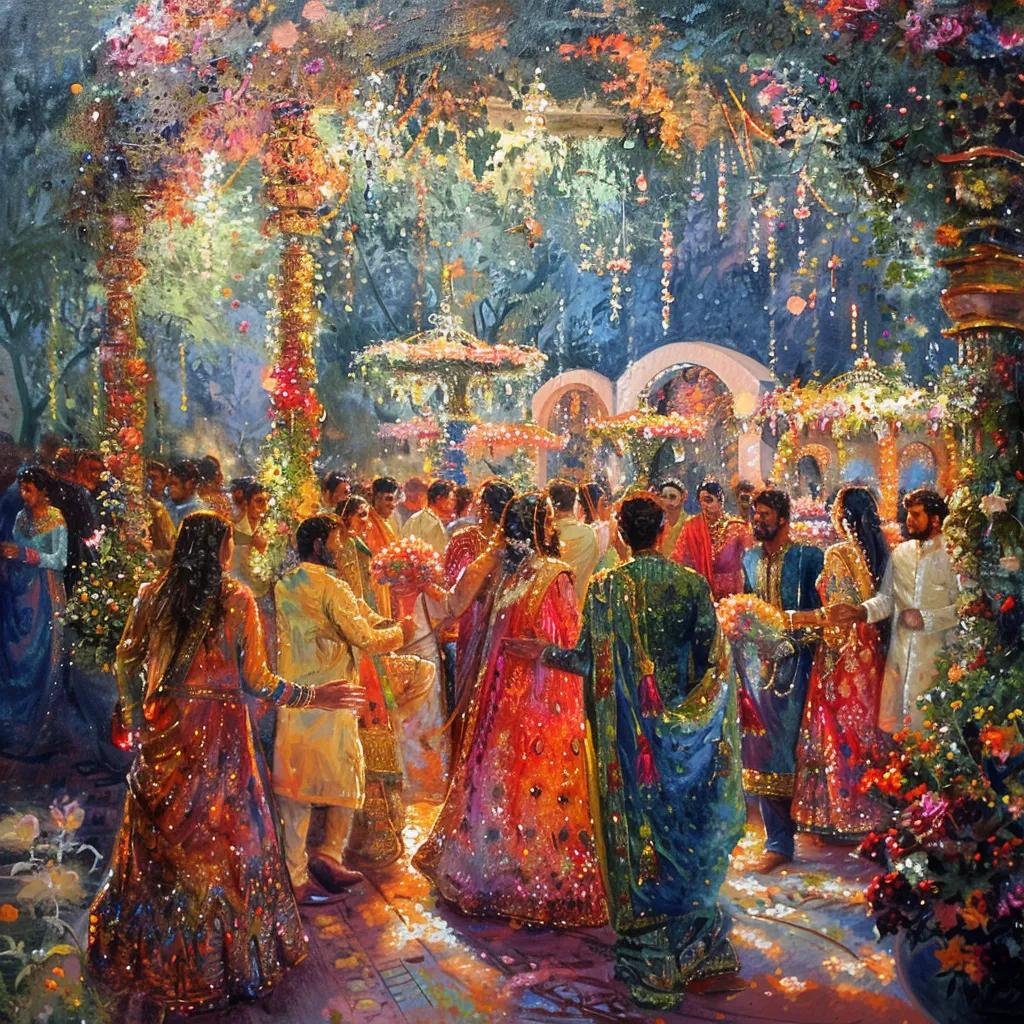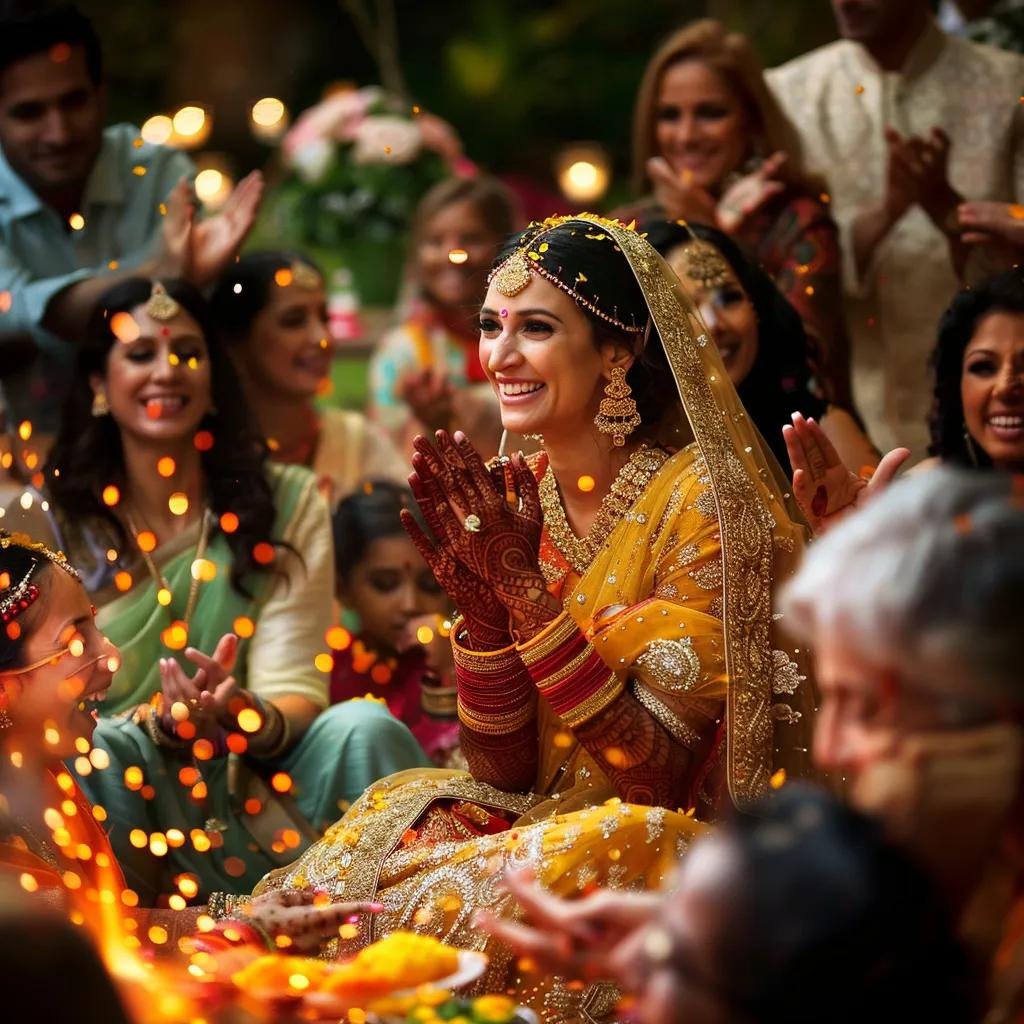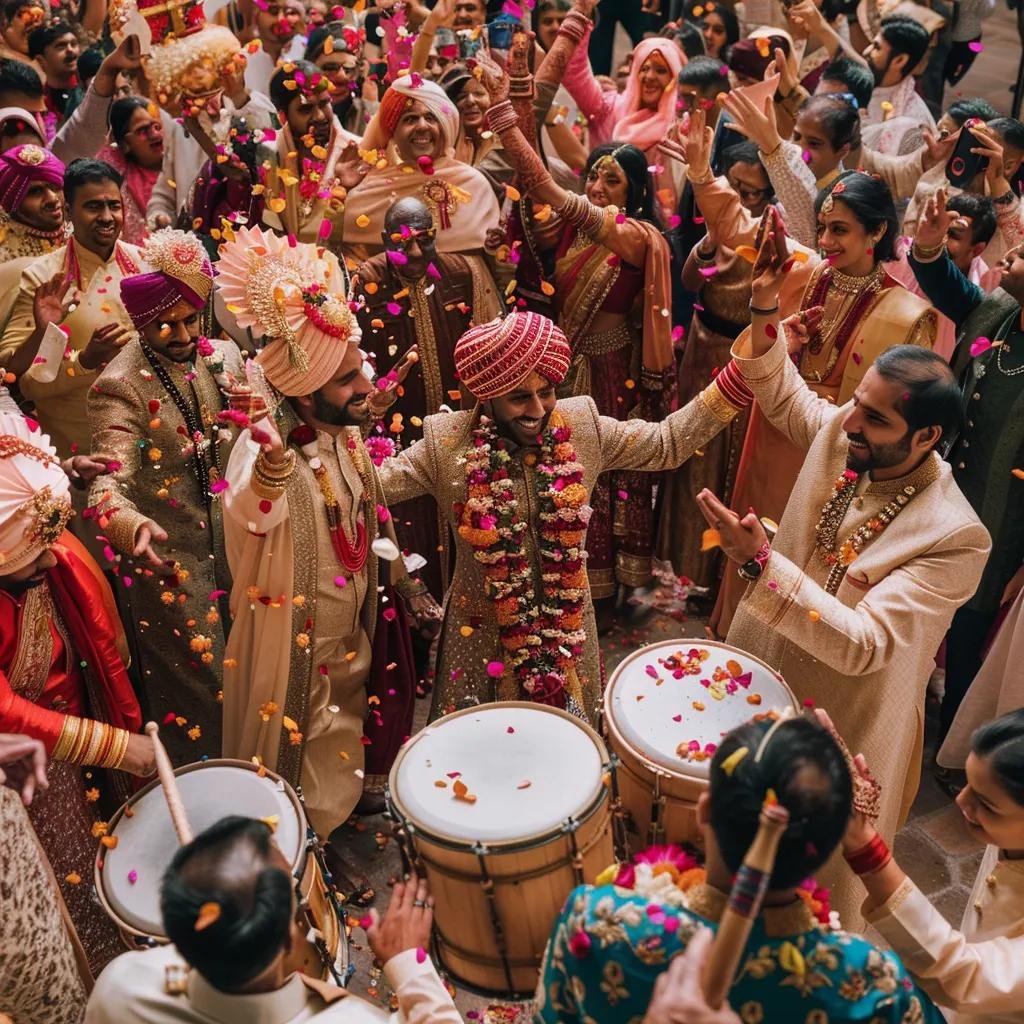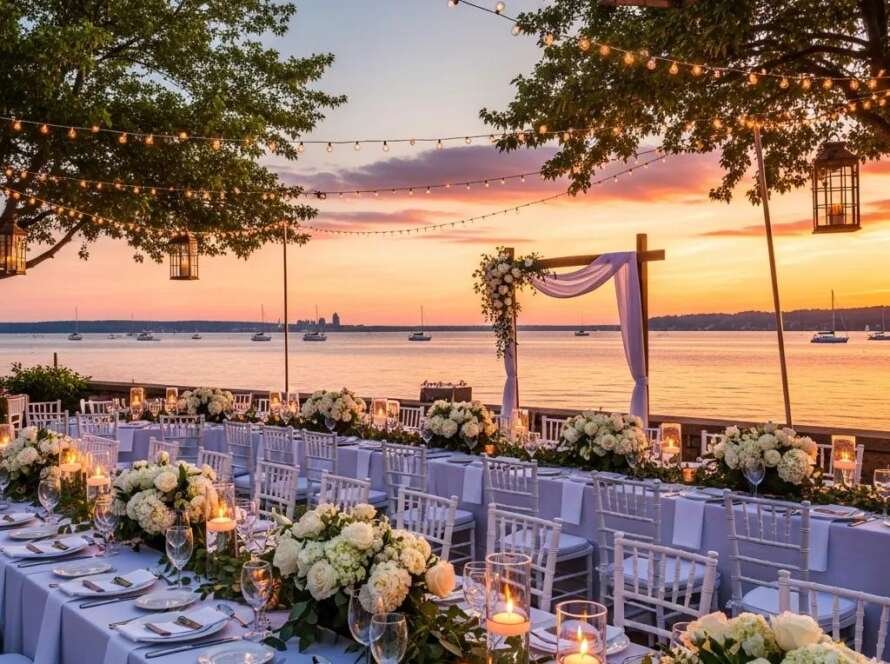
Pakistani Wedding Traditions: A Journey Through Vibrant Celebrations
Step into the world of Pakistani weddings, where age-old traditions meet modern flair in a multi-day celebration. From the heartfelt Mangni to the grand Walima, each event is a tapestry of cultural richness. Discover how Let’s Groove Events crafts unforgettable experiences, blending tradition with contemporary elegance. Explore the meanings behind each ritual, get inspired by stunning décor, and gather practical tips for every stage of your wedding journey.
Unveiling the Key Events of a Pakistani Wedding
Pakistani weddings are a series of joyous events that bring families together, honor religious customs, and create lasting memories. Each ceremony has its own unique significance, marking milestones from engagement to the grand reception.
Here’s a quick overview of the core events, their purposes, and standout features.
| Event | Attribute | Value |
|---|---|---|
| Mangni | Purpose | Formal engagement and announcement |
| Mehndi | Feature | Henna-painting party with music and dance |
| Nikah | Ritual | Islamic marriage contract exchange |
| Baraat | Style | Groom’s grand procession with traditional drummers |
| Walima | Reception | Post-wedding feast and public introduction of couple |
These cornerstone ceremonies weave a rich tapestry of cultural connections, setting the stage for the symbolic rituals that follow.
Pre-Wedding Rituals: Mangni, Mayun, and Dholki

Pre-wedding gatherings are all about family, blessings, and setting a joyful tone for the days ahead.
- Mangni (Engagement) – Rings are exchanged, and families formally agree to the marriage.
- Mayun (Purification) – The bride undergoes beautification with turmeric paste amidst yellow décor.
- Dholki (Drum Party) – An informal celebration with singing and dancing around the dholak drum.
These events foster a sense of community and excitement leading up to the Nikah ceremony.
The Nikah Ceremony: A Sacred Union
The Nikah is the heart of the wedding, where the bride and groom exchange vows in the presence of a Qazi and witnesses. This ceremony includes Mahr negotiations, symbolizing a lifelong commitment. It’s a profound moment that marks the official start of their journey together.
The Baraat Procession: A Festive Parade

The Baraat is a lively procession that announces the groom’s arrival with dhol players, dancers, and decorated vehicles. It’s a celebration of community joy, with guests cheering and showering flower petals as the groom makes his grand entrance.
The Walima Reception: A Grand Finale
The Walima is the final feast hosted by the groom’s family, introducing the newlyweds to the community. It’s a lavish affair with traditional dishes like biryani and kebabs, embodying hospitality and celebration.
Cultural and Religious Symbolism in Pakistani Weddings
Every ritual in a Pakistani wedding is steeped in symbolism, connecting participants to their faith, family, and future. These customs carry deep meanings that honor heritage and convey blessings.
The Role of Mahr in the Nikah Ceremony
Mahr is a mandatory gift from the groom to the bride, symbolizing security and respect. It’s a key element of the Nikah, ensuring the bride’s financial protection and underscoring the groom’s commitment.
Khan, A., Islamic Family Law (2020)
This research supports the article’s explanation of Mahr’s role in the Nikah ceremony.
The Significance of Henna in the Mehndi Ceremony
Henna is more than just a decorative art; it symbolizes prosperity and protection. The depth of the henna stain is believed to reflect the strength of love and family bonds.
Ali, S., Pakistani Wedding Customs: A Cultural Overview (2018)
This citation provides further context to the cultural and religious symbolism embedded in Pakistani wedding traditions, specifically the Mehndi ceremony.
Bridal and Groom Attire: A Nod to Tradition
From the bride’s intricately embroidered lehenga to the groom’s regal sherwani, attire choices honor regional craftsmanship and cultural significance.
| Entity | Attribute | Value |
|---|---|---|
| Bride’s Lehenga | Color | Red or maroon embellished with gold |
| Groom’s Sherwani | Fabric | Silk or brocade detailed with embroidery |
| Henna Designs | Motif | Paisley, floral patterns on hands and feet |
These ensembles are a visual celebration of cultural artistry and the joyous spirit of the wedding day.
Modern Trends in Pakistani Weddings
Today’s couples are blending timeless traditions with modern touches, from personalized décor to tech-savvy innovations, creating unique and memorable experiences.
Modernizing Mehndi and Dholki Celebrations
Contemporary Mehndi events feature themed lounges, mirrored backdrops, and choreographed performances. DJs and live bands mix traditional rhythms with modern tracks, engaging guests of all ages.
Decor Themes and Floral Designs
Vibrant floral installations, suspended chandeliers, and draped fabrics create immersive ambiances. Pastel palettes and statement centerpieces balance heritage colors with contemporary elegance.
Incorporating Local Influences in NJ/NYC Weddings
Couples in New Jersey and New York City often blend local florals with South Asian motifs, hire multilingual emcees, and use urban backdrops for photoshoots, adding a regional twist to their celebrations.
Enhancing Pakistani Weddings with Professional Planning
Expert planners turn complex traditions into seamless events, ensuring every ritual shines. Their expertise allows couples to enjoy each moment without stress.
Personalizing Mehndi and Nikah with Let’s Groove Events
Let’s Groove Events collaborates on custom color schemes, table arrangements, and lighting to highlight henna artistry and Nikah décor. They source authentic elements and coordinate entertainment to match the couple’s vision.
Decor Ideas for Baraat and Walima
Bold floral arches, LED drapes, and lounge seating make the Baraat memorable, while upscale buffet displays and thematic table settings elevate the Walima. Strategic lighting and sound design ensure a seamless experience.
Simplifying Multi-Day Weddings with Vendor Management
Coordinating photographers, caterers, florists, and transportation ensures smooth transitions between events. Multilingual services from Let’s Groove Events bridge communication gaps and prevent scheduling conflicts.
Common Questions About Pakistani Weddings
Planning a Pakistani wedding often raises questions. Here are some answers to help set expectations and streamline preparations.
Duration of Pakistani Weddings
Typically lasting three to five days, Pakistani weddings cover pre-wedding rituals, the Nikah ceremony, and post-wedding receptions, allowing for meaningful observance of all traditions.
Key Rituals in a Pakistani Wedding
The Mehndi ceremony, Nikah marriage contract, and Walima reception are pivotal, anchoring celebration, legal union, and communal blessing in cultural practice.
Traditional Foods at Pakistani Weddings
Signature dishes include aromatic biryani, succulent kebabs, creamy curries, assorted chutneys, and sweet mithai like gulab jamun and barfi, satisfying every palate.
Pakistani wedding traditions blend ritual richness, family unity, and celebratory flair into an unforgettable tapestry of events. Embracing these customs while partnering with an experienced planner elevates each ceremony and eases logistical demands. To explore how your wedding can honor heritage with bespoke design, contact Let’s Groove Events for a personalized consultation.



